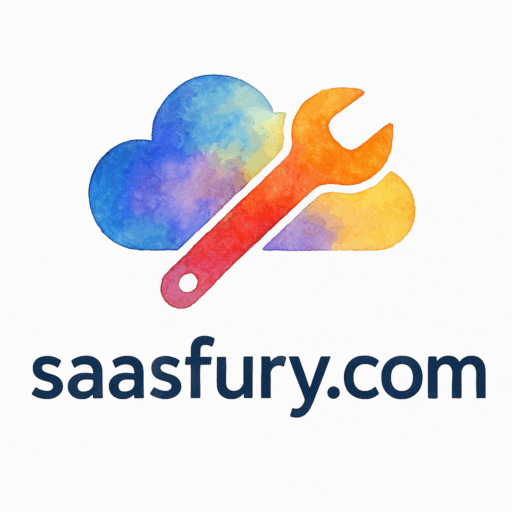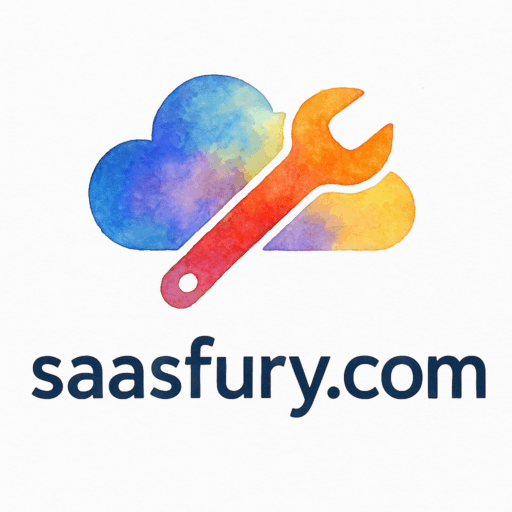Introduction: Why SaaS Tools Are Essential for Consultants
Running a consulting business is like juggling a dozen balls at once—clients, projects, strategy, and endless admin tasks. That’s where SaaS tools come in. These cloud-based solutions streamline processes, save time, and enhance client satisfaction.
If you’re aiming to scale your consulting business and reduce inefficiencies, investing in the right SaaS stack is the smartest move you can make.
Understanding SaaS in Consulting
What is SaaS and How Does It Work?
SaaS (Software-as-a-Service) delivers applications over the internet instead of requiring bulky installations. No complicated setups—just log in and start working. Plus, providers handle updates, backups, and security for you.
Why Consulting Businesses Rely on SaaS Solutions
Consultants thrive on efficiency. With tools for professional services, consultants can manage projects, collaborate with clients, and access files from anywhere in the world.

Key Benefits of SaaS Tools for Consulting Firms
Cost Efficiency and Scalability
SaaS platforms typically use subscription models, making them budget-friendly and scalable as your consulting firm grows.
Flexibility and Remote Access
With SaaS, consultants can operate remotely and collaborate seamlessly with clients, whether across town or across continents.
Security and Compliance Advantages
Consultants often handle sensitive data. Many SaaS providers comply with strict standards like GDPR or HIPAA, especially in areas like healthcare consulting tools.
Criteria for Choosing the Best SaaS Tools
Ease of Use and Integration
Adoption rates depend on simplicity. Look for SaaS platforms that integrate well with tools you’re already using in business consulting.
Customization Options
Every firm is unique. A customizable tool ensures workflows, dashboards, and reports match your consulting style.
Pricing and Support
Value matters more than price. Strong customer support and a transparent cost structure can make or break your experience.
6 SaaS Tool Recommendations for Consulting Businesses
1. Project Management Tools
Project management is the backbone of consulting. Without it, deadlines slip and collaboration breaks down.
Example: Asana & Trello for Streamlined Collaboration
Platforms like Asana and Trello help consulting firms track projects, assign tasks, and keep clients updated. They’re a must for creative consulting teams handling multiple deliverables.
2. Customer Relationship Management (CRM)
Managing leads and nurturing clients is critical for consultants looking to grow.
Example: HubSpot & Salesforce for Stronger Client Relations
CRMs like HubSpot and Salesforce automate lead tracking, follow-ups, and client communication. They’re particularly useful for marketing agencies and consultants who juggle large client bases.
3. Communication and Collaboration Platforms
Emails are outdated for fast-moving consulting teams. Real-time collaboration is key.
Example: Slack & Microsoft Teams for Seamless Communication
Slack and Teams centralize messaging, video calls, and file sharing. This is invaluable for consultants in online education or language coaching where communication drives client success.
4. Financial and Accounting Software
Consultants need to stay on top of invoicing, expenses, and taxes without drowning in spreadsheets.
Example: QuickBooks & Xero for Better Financial Control
QuickBooks and Xero simplify accounting tasks. They’re especially helpful for small firms and retail consultants managing multiple income streams.
5. Scheduling and Appointment Management Tools
Time management is everything in consulting. Manual scheduling wastes precious hours.
Example: Calendly & Doodle for Smarter Time Management
Tools like Calendly eliminate back-and-forth emails. For consultants in hospitality or restaurants, these tools make client appointments effortless.
6. Analytics and Business Intelligence Tools
Consultants deliver value by providing insights. Without data, advice is just opinion.
Example: Tableau & Power BI for Data-Driven Consulting
Analytics platforms like Tableau and Power BI transform raw numbers into actionable insights. They’re especially powerful for consultants in retail e-commerce where data drives decisions.
How SaaS Tools Drive Growth in Consulting Businesses
Improving Productivity and Efficiency
Automating routine tasks lets consultants focus on high-value strategic work.
Enhancing Client Experience
Clients expect clarity and speed. SaaS ensures smoother communication, faster reporting, and better outcomes.
Supporting Remote and Hybrid Work Models
From healthcare wellness consulting to corporate strategy, SaaS empowers global teams to work seamlessly.
Common Mistakes Consultants Make When Choosing SaaS Tools
Ignoring Scalability
Choosing tools that can’t grow with your firm creates bottlenecks later.
Overlooking Security Features
For consultants handling sensitive data like patient records, skipping security checks is a recipe for disaster.
Choosing Price Over Value
Cheap tools often cost more in lost productivity. Always consider ROI, not just the sticker price.
Future Trends of SaaS in Consulting Businesses
AI-Powered SaaS Tools
Expect smarter recommendations, predictive analytics, and automation across industries.
Omnichannel Integrations
Future SaaS solutions will connect CRM, scheduling, and financial systems into unified omnichannel platforms.
Industry-Specific SaaS for Consultants
From medical SaaS to retail, expect more niche solutions designed for consultants working in specialized industries.
Conclusion
SaaS tools are no longer optional for consulting businesses—they’re essential. Whether you’re managing projects, finances, or client communication, the right platforms will help you work smarter, not harder. By picking tools strategically and avoiding common mistakes, consulting firms can boost efficiency, strengthen client relationships, and stay competitive.
FAQs
What is the most important SaaS tool for consulting businesses?
Project management and CRM tools are usually the most impactful since they directly affect client deliverables and relationships.
How do SaaS tools help consultants save time?
By automating repetitive tasks like scheduling, invoicing, and reporting, SaaS frees up valuable hours.
Are SaaS tools secure for sensitive client data?
Yes. Many solutions comply with strict standards like HIPAA for healthcare consultants.
Can small consulting businesses afford SaaS solutions?
Absolutely. Many SaaS platforms offer flexible, low-cost plans designed for small businesses.
Do consultants need industry-specific SaaS tools?
While general tools work well, industry-specific platforms offer features tailored to niches like hospitality tools or retail software.
How do SaaS tools improve collaboration in consulting?
By centralizing communication, task management, and file sharing, SaaS eliminates silos.
What is the future of SaaS for consulting businesses?
The future lies in AI-driven automation, consulting-specific tools, and deeper omnichannel integration.

